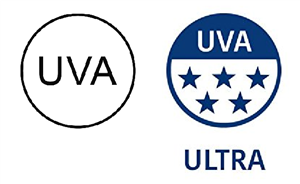This week is Sun Awareness Week which aims to highlight the dangers of over-exposure to the sun and help people enjoy the sun safely. In this blog, Editorial Assistant Helen gives some tips on how to take care when the sun is out.
Last month, the UK saw temperatures of up to 29.1°C and the hottest day in April since 1949. The sun was out in full force and lots of people headed outside to enjoy the unseasonably warm weather.
Sunshine is important. It is a source of vitamin D which helps keep our bones and teeth healthy. In the UK, exposing your skin to sunlight daily between 11am and 3pm from May until September increases vitamin D levels. It is recommended that adults get 10 minutes of sun on bare skin (without sunscreen) once or twice a day, depending on their skin type.
However, according to a survey by the British Association of Dermatologists, more than one in three Brits have been sunburnt in the last year while in the UK. You should protect your skin in the sun and take care not to burn, as research shows that sun damage greatly increases the risk of developing skin cancers.
Here are some tips to help you protect your skin when the sun is out.
Avoid the sun
To protect your skin from sun damage, you should try and stay out of strong sunlight during the hottest part of the day. This is usually between 11am and 3pm. If you are outside, you should try and stay in the shade as much as possible and use sun cream and clothing to protect you.
The Met Office website gives daily UV information for the UK. But in countries closer to the equator or at higher altitudes, your sunburn risk will be higher. When the UV rating is 3 or above, it is possible to become sunburned, so you should take precautions.
Cover up
Clothing made of cotton or natural fibres, with a tight weave gives more protection against the sun. Long sleeves and trousers or a long skirt can protect your arms and legs. You can also wear a wide brimmed hat to keep the sun off your face, neck and ears.
Wear sun cream
Wearing sun cream isn’t an alternative to staying out of the sun but it can give you extra protection, especially on areas that are difficult to cover. It is also good to wear sun cream even on days when the sun isn’t strong, if you are going to be outside for long periods of time. You should wear a high factor sun cream and make sure it is applied properly.
Follow these tips to make sure that you are using sun cream correctly:

If you’ve had cancer treatment
Some cancer treatments can make your skin very sensitive. If you’ve had chemotherapy or targeted therapies, you may sunburn more easily and you’ll need to be a bit more careful.
If you’ve had radiotherapy , the skin in the treated area may sunburn faster. Your cancer doctor can give advice about any treatments you’re having.
To see what else Macmillan's cancer information team has been blogging about, please visit our blog home page! You can subscribe to receive our blogs by email or RSS too.
We're with you every step of the way
The Macmillan team is here to help. Our cancer support specialists can answer your questions, offer support, or simply listen if you need a chat. Call us free on 0808 808 00 00.
Comments? Feel free to add them below (you need to be logged in).
Keep in touch Follow Macmillan’s cancer information team on Twitter @mac_cancerinfo
Whatever cancer throws your way, we’re right there with you.
We’re here to provide physical, financial and emotional support.
© Macmillan Cancer Support 2026 © Macmillan Cancer Support, registered charity in England and Wales (261017), Scotland (SC039907) and the Isle of Man (604). Also operating in Northern Ireland. A company limited by guarantee, registered in England and Wales company number 2400969. Isle of Man company number 4694F. Registered office: 3rd Floor, Bronze Building, The Forge, 105 Sumner Street, London, SE1 9HZ. VAT no: 668265007